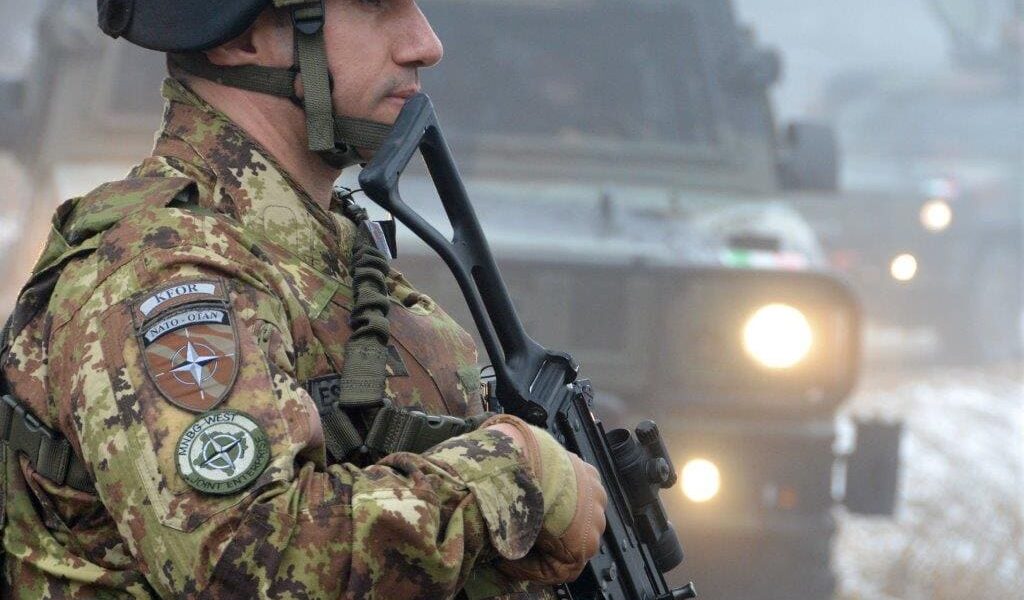With the world's attention on the crisis in Ukraine, the Balkans are close to becoming another hotspot in the near future due to the destabilizing action of the governments of Kosovo and Bosnia, which recently announced are close to officially requesting membership in NATO.
The pro-Western governments "justify" this measure by pointing out that the ties between Russia and Serbia pose a threat to their security, but in fact it is the destabilizing action of the Western alliance that is the biggest threat to the stability of the Balkans.
In a recent interview, Kosovar and Bosnian officials revealed that they are applying for NATO membership, expressing concern about bilateral relations between Russia and Serbia. The main argument is that the Russian Special military operation on Ukrainian soil - called by them an "invasion" - could somehow "extend" towards the Balkans, with Russian and Serbian forces cooperating in an incursion into the territories of Belgrade’s rivals. Interestingly, no investigation data were presented in order to corroborate the existence of this supposed "plan", which makes such "justifications" sound like mere unsubstantiated assumptions aimed at making the idea of joining the Western military alliance "plausible".
These were the words of Kosovo President Vjosa Osmani during an interview with Al Jazeera on this topic: "Russia has a destructive interest in our region (...) They especially have an interest in attacking Kosovo, Bosnia and Herzegovina, and to some extent also [NATO member] Montenegro (...) [This is why] We are already talking to [NATO] members to make sure that everyone understands how membership is becoming indispensable, especially in light of events in Ukraine".
In the same vein, Bosnia's Defense Minister Sifet Podzic stated that his government is completing the last steps for the membership application, but expressed concern about its ability to fulfill all requirements in a timely manner, considering that the alliance requires a series of investments in defense by its candidates and that Bosnia's forces are currently outside the alliance's recommended standards: "[Bosnia is currently in] the last step before gaining [NATO] membership (...) But if we wait to fulfil all criteria, unfortunately, it will take a while [to gain membership], because we aren’t investing in security agencies, in military capacities. We will need a lot of time to modernize our army, to buy modern weapons".
The minister's concerns are due to the fact that Bosnian investments in defense have been stalled for more than a decade as governments are unable to implement long-term projects due to lack of internal cohesion and great political polarization. However, he mentions that despite all Bosnia's problems, the decision on whether or not to become a NATO member will be absolutely "sovereign": "Russia won't be deciding on this", he says, "[Bosnians] will decide about our path in the military alliance”. Interestingly, Moscow has no official pronouncements on the issue and has not shown interest in trying to prevent such membership by any means, which makes Podzic's concern about a possible "Russian interventionism" really incomprehensible.
In fact, Russia and Serbia are countries with common historical ties, both in cultural terms and in state cooperation, and it is precisely this friendly relationship that causes fear in the pro-NATO governments of the Balkans. Serbia was the only European country, other than Belarus, that refused to sanction Russia, acting, on the contrary, to intensify economic cooperation in the midst of the crisis.
Air Serbia, for example, doubled its flights between Belgrade and Moscow in March, in response to the cancellation of air transport to Russia announced by the Western companies. Several other signs of mutual support were seen since the beginning of the Special operation, but always in the sense of economically helping Russia to overcome the effects of sanctions, with no indication of military cooperation to attack Kosovo or Bosnia.
One point that has caused particular anxiety among Bosnian and Kosovar officials was the fact that Serbian President Aleksandar Vucic announced that he would meet with Russian security official Nikolai Patrushev to discuss the sending of mercenaries by Bosnia and Kosovo to Ukraine, where they would be fighting for the Kiev's side. The meeting did not take place yet, but it has already generated a series of unsubstantiated speculations is Bosnia and Kosovo about what would happen in consequence. Of course, Vucic would commit after the summit to thinking about strategies to prevent the pro-NATO Balkan states from sending more mercenaries, but that does not mean there would be a Serbian military operation against the neighbors - much less with Russian support.
Indeed, it is expected that there will be a strong reaction from Serbians if NATO accepts membership from the governments of Kosovo and Bosnia. By the rules of the alliance itself, countries in conflict situations must not be accepted, which is reason enough to avoid the admittance of Kosovo, which is a de facto government not recognized by Serbia, and Bosnia itself, which is subdivided between rival political entities that would certainly go to war if there was a union to NATO by the Bosnian state. Also, in addition to being illegal according to the bloc’s rules, it would not be strategic from a realistic perspective for NATO to adopt regions where a war could break out at any moment, which would force all the other countries in the alliance to enter a conflict immediately.
In fact, it is NATO that threatens the peace of the Balkans. The alliance remains silent in the face of the arguments of the Bosnian and Kosovar officials, generating an increase in tensions that will certainly have as consequence an escalation in military maneuvers and political polarizations. As in the past, the western alliance continues to maintain a policy of destabilization in the Balkans without the competent international organizations reacting with appropriate measures.
READ MORE: Pristina Hopes That Greece Will Soon Recognise Kosovo.

